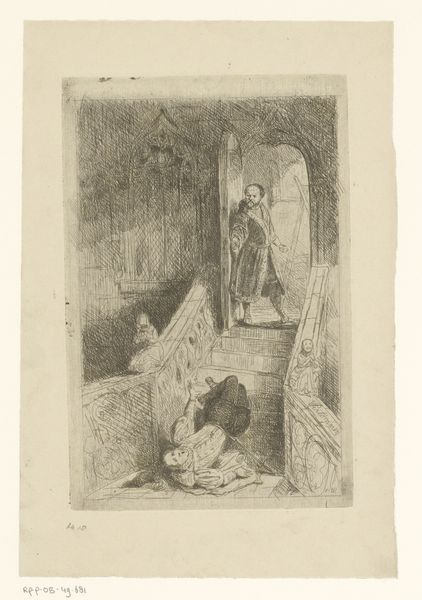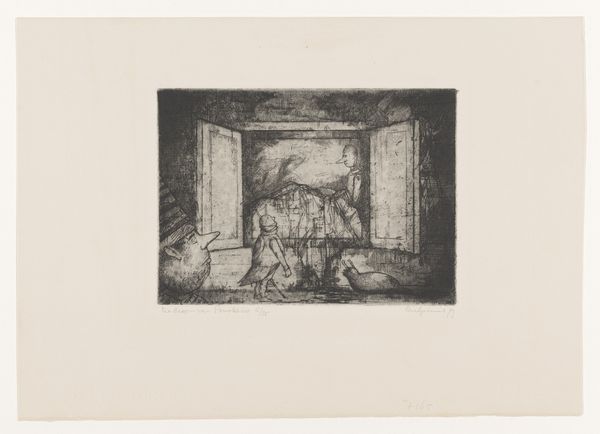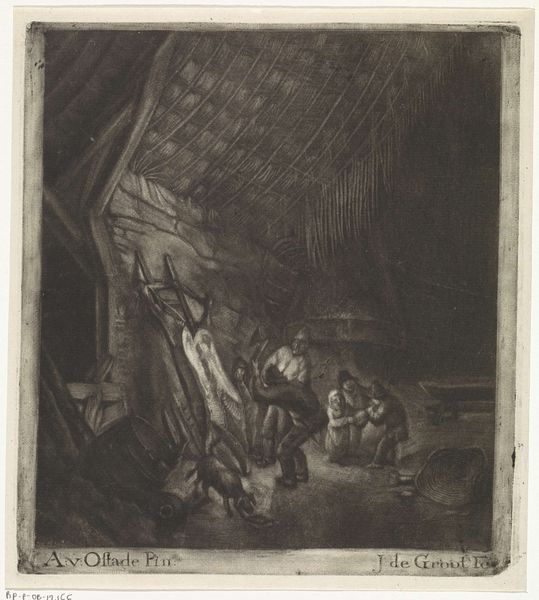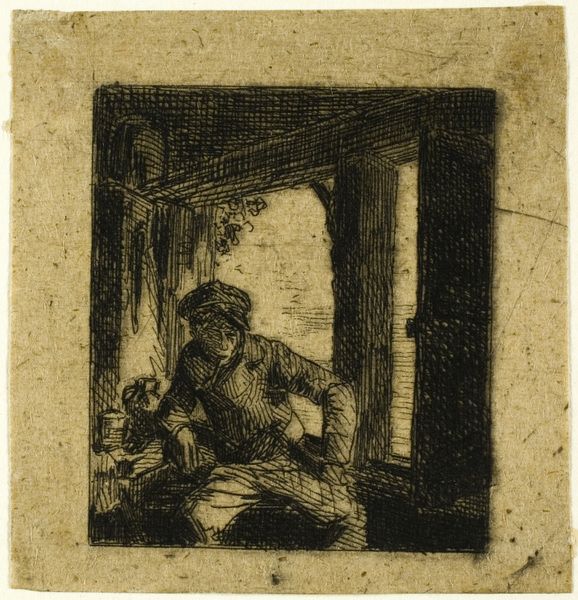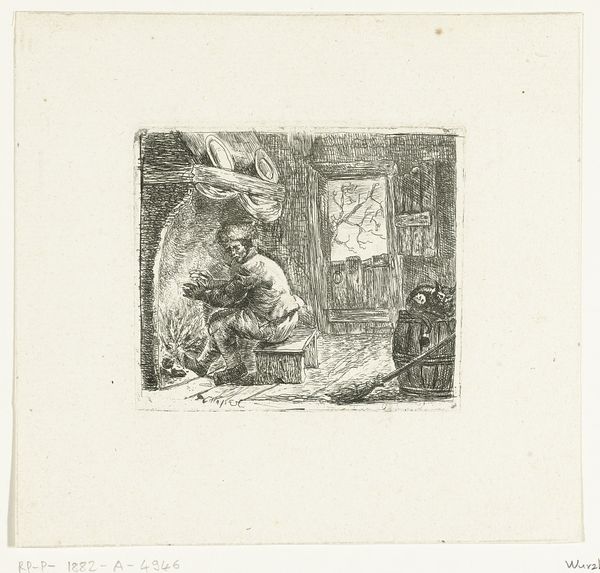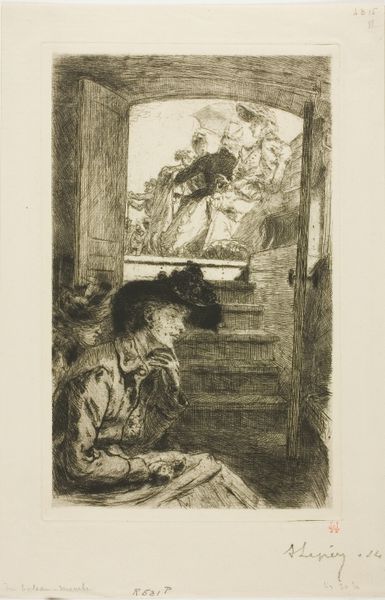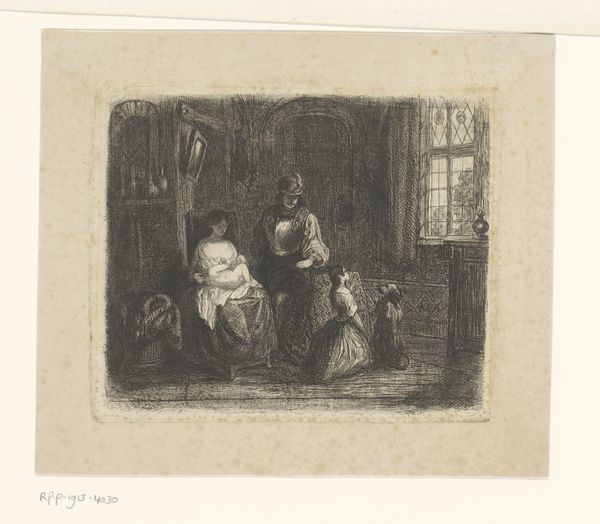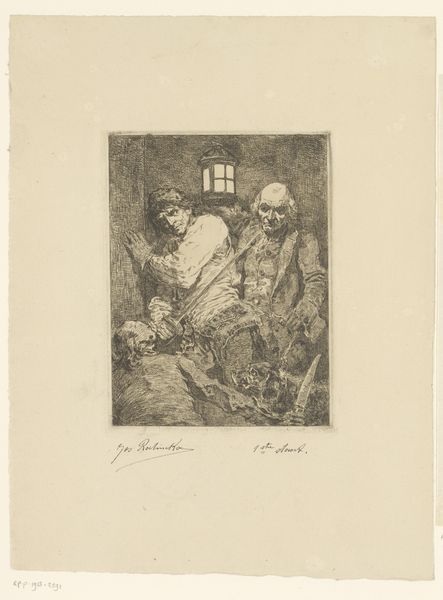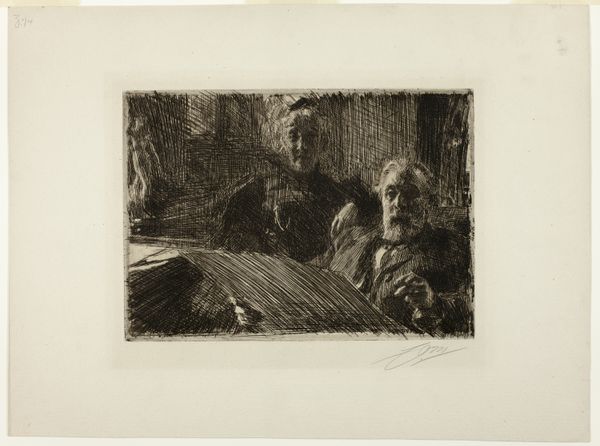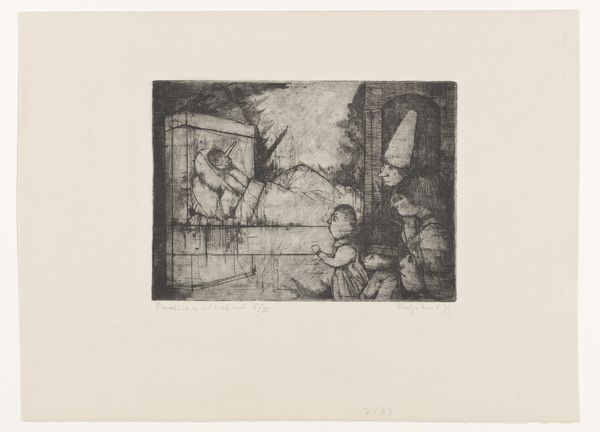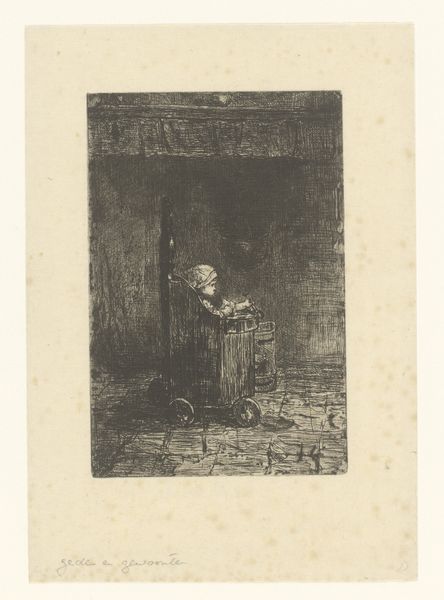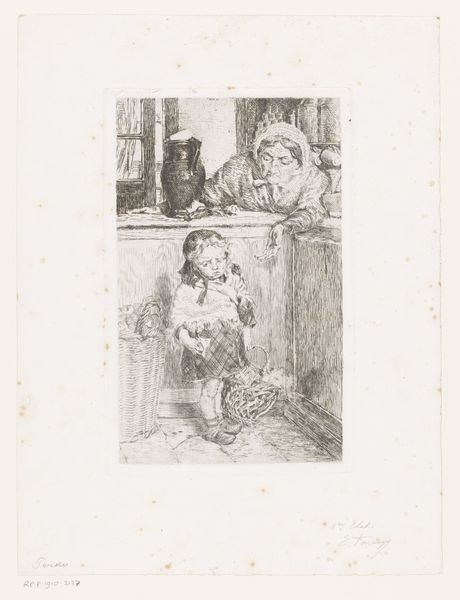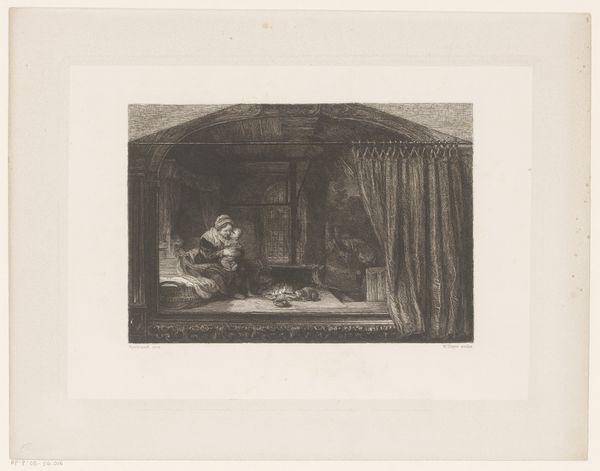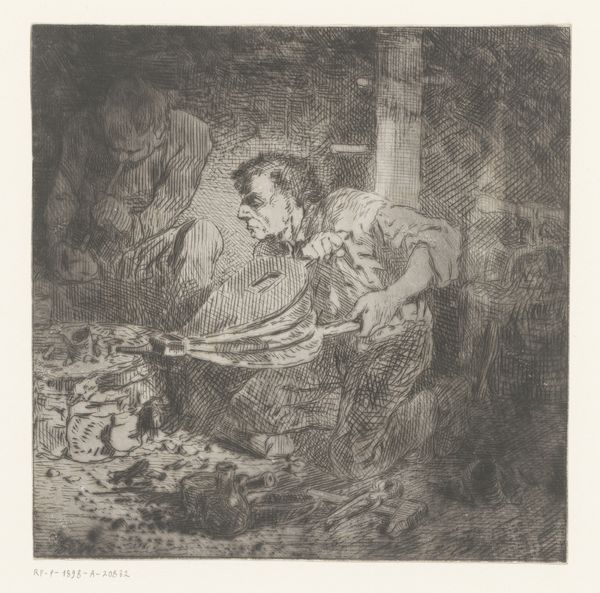
drawing, print, etching, drypoint
#
drawing
# print
#
etching
#
genre-painting
#
drypoint
#
realism
Dimensions: 4 3/16 x 4 in. (10.64 x 10.16 cm) (plate)4 7/8 x 4 1/4 in. (12.38 x 10.8 cm) (sheet)
Copyright: Public Domain
Auguste Brouet’s etching, “The Little Cobbler,” presents a scene dominated by labor, echoing the ancient motif of human toil. Here, the cobbler bent over his work embodies a timeless symbol of craftsmanship, recalling the figures of Vulcan or Hephaestus from classical antiquity, gods of the forge, shaping destiny with their hands. Consider the stooped posture of the artisan – it's reminiscent of depictions of Atlas, the Titan burdened with the weight of the world. This posture, recurring throughout art history, speaks to the universal human condition of enduring hardship through labor. The act of mending, of piecing together, appears across cultures, from the mythical Penelope weaving and unweaving, to the Norns spinning the threads of fate. The cobbler's repetitive actions, meticulously captured by Brouet, become a ritualistic gesture, a connection to our ancestors who crafted their existence from meager means. This is not merely a scene of labor; it's a tableau of persistence, a testament to the unyielding spirit found across epochs, forever imprinted in our collective psyche.
Comments
No comments
Be the first to comment and join the conversation on the ultimate creative platform.
